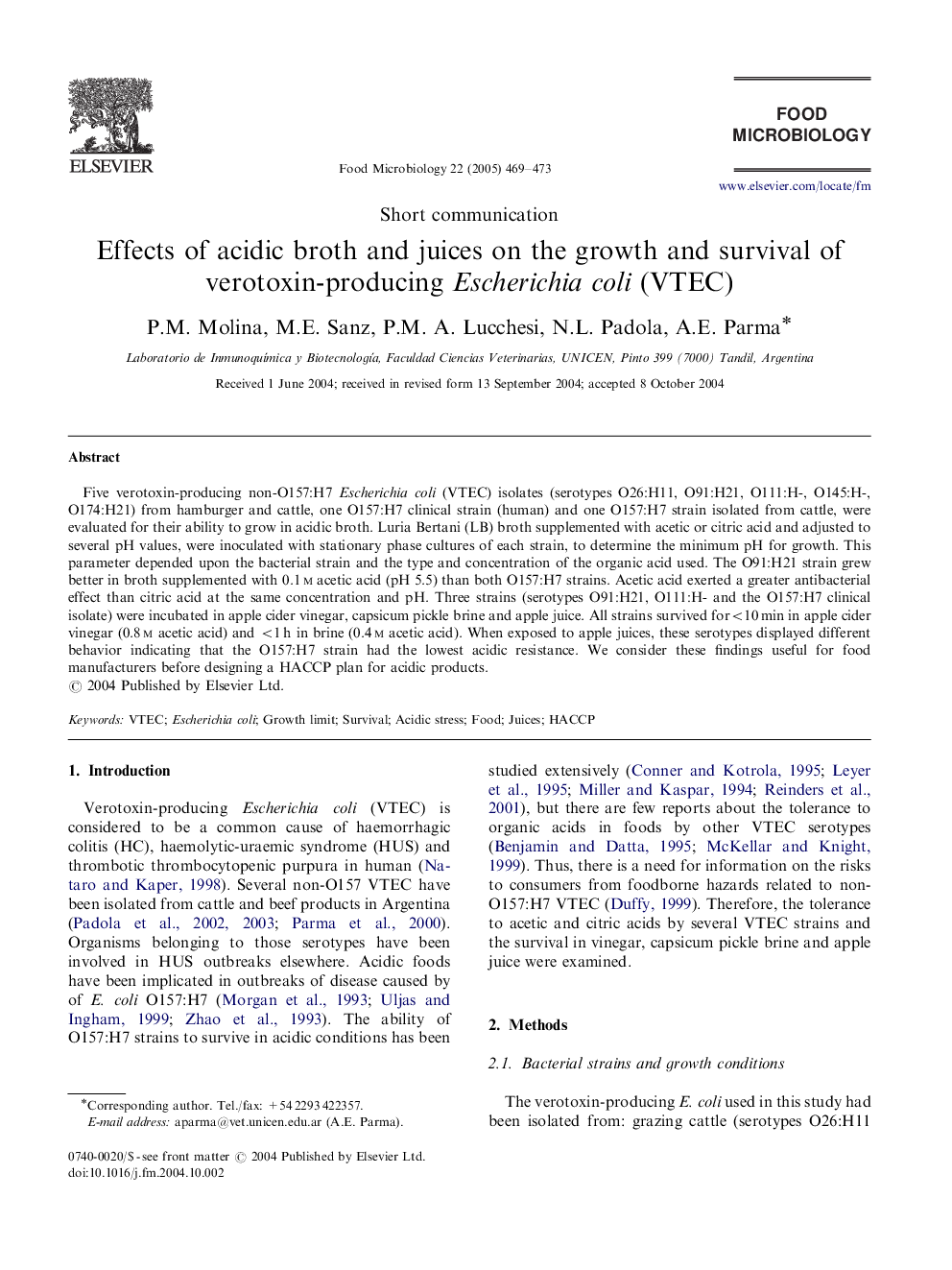| Article ID | Journal | Published Year | Pages | File Type |
|---|---|---|---|---|
| 9441890 | Food Microbiology | 2005 | 5 Pages |
Abstract
Five verotoxin-producing non-O157:H7 Escherichia coli (VTEC) isolates (serotypes O26:H11, O91:H21, O111:H-, O145:H-, O174:H21) from hamburger and cattle, one O157:H7 clinical strain (human) and one O157:H7 strain isolated from cattle, were evaluated for their ability to grow in acidic broth. Luria Bertani (LB) broth supplemented with acetic or citric acid and adjusted to several pH values, were inoculated with stationary phase cultures of each strain, to determine the minimum pH for growth. This parameter depended upon the bacterial strain and the type and concentration of the organic acid used. The O91:H21 strain grew better in broth supplemented with 0.1Â m acetic acid (pH 5.5) than both O157:H7 strains. Acetic acid exerted a greater antibacterial effect than citric acid at the same concentration and pH. Three strains (serotypes O91:H21, O111:H- and the O157:H7 clinical isolate) were incubated in apple cider vinegar, capsicum pickle brine and apple juice. All strains survived for<10Â min in apple cider vinegar (0.8Â m acetic acid) and <1Â h in brine (0.4Â m acetic acid). When exposed to apple juices, these serotypes displayed different behavior indicating that the O157:H7 strain had the lowest acidic resistance. We consider these findings useful for food manufacturers before designing a HACCP plan for acidic products.
Related Topics
Life Sciences
Agricultural and Biological Sciences
Food Science
Authors
P.M. Molina, M.E. Sanz, P.M. A. Lucchesi, N.L. Padola, A.E. Parma,
